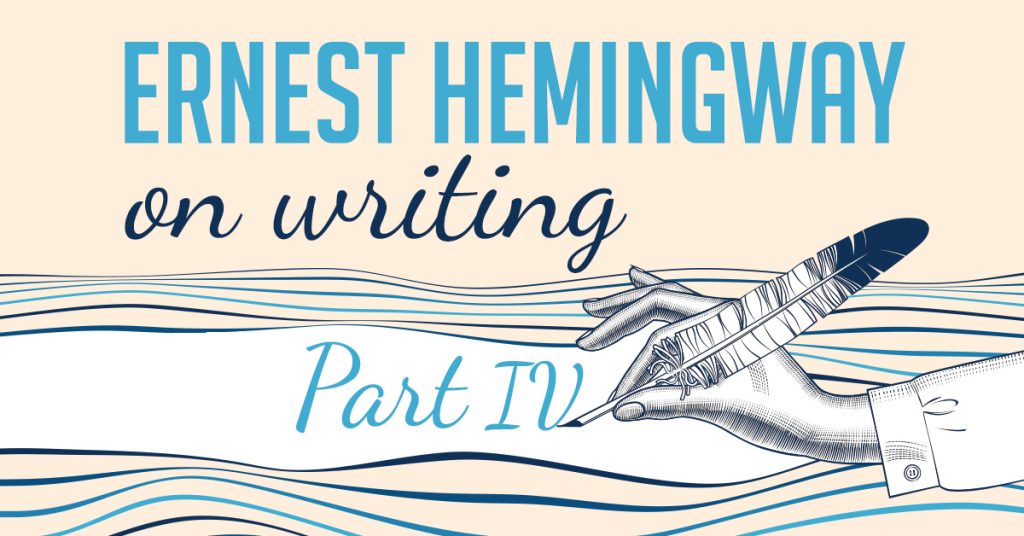We are continuing on with our “Ernest Hemingway on Writing” series…
(If you haven’t read the first three parts, you can find them here:Part 1,Part 2 & Part 3).
As always – I’ll be sharing some insights from the book Ernest Hemingway on Writing, then showing you how they apply to the life and career of a copywriter.📚
Here we go…👇
The Quote:
Listen now. When people talk, listen completely. Don’t be thinking what you’re going to say. Most people never listen. Nor do they observe. You should be able to go into a room and when you come out know everything that you saw there and not only that. If that room gave you any feeling you should know exactly what it was that gave you that feeling. Try that for practice. When you’re in town stand outside the theatre and see how the people differ in the way they get out of taxis or motor cars. There are a thousand ways to practice. And always think of other people.
The Application:
Transfer: happiness, fear, hopes, dreams, pain, joy, suffering, expectations, moments, and modes.
Most of the great sales letters I wrote early in my career were based off experience. When I was younger and did more “made up” stories, the spokesperson was a composite of people I knew in my own life. My father. Friends from college and their parents. People I’d worked with. Folks I’d talked to while traveling. And so on.
For a variety of reasons, I don’t do made-up stories anymore. Instead, I’m sharing the stories of real people who have become the spokesperson or founder of the product I’m writing for. But the principles don’t change. I get on calls with these people, and I listen. I observe everything: not just what they’re saying, but how they’re saying it.
What parts of their story make them emotional? What “throwaway” comments do they make about their family, political views, human nature, etc.? I want to hear all of this so that I can capture who they are in the truest sense possible and then transfer it all to the prospect. And hopefully, I do that in a way that makes the prospect see themselves in the spokesperson too.
The Quote:
I would like to be able to write understandingly about both deserters and heroes, cowards and brave men, traitors and men who are not capable of being traitors. We learned a lot about all such people.
The Application:
When I first started out writing health copy, I was often judgmental of my market. I thought of them as people who didn’t have the self-control or discipline to maintain their health. It was their fault they had high blood sugar or were overweight, etc. After all, so much of our health (or lack thereof) comes back to diet and lifestyle. The decisions we make.
And that’s true. But what good does lording that over your prospect do? How does feeling smug or superior aid you in the quest to effectively transfer feelings and aspirations? To connect with a prospect and get them to take action?
In order to really, truly, and effectively sell: You must love your prospect.
In the same way you would love a sibling or a spouse.
Flaws and all.
When you love them and have empathy for them, that’s when the walls get broken down. That’s when they become receptive to you. It’s when they begin to trust you and believe that you have their best interest at heart.
That’s when making the sale becomes almost effortless.
– SPG
P.S. This post originally came from an email I sent to my private list. If you want to see more stuff like this from me, you can apply to join my list using this link
